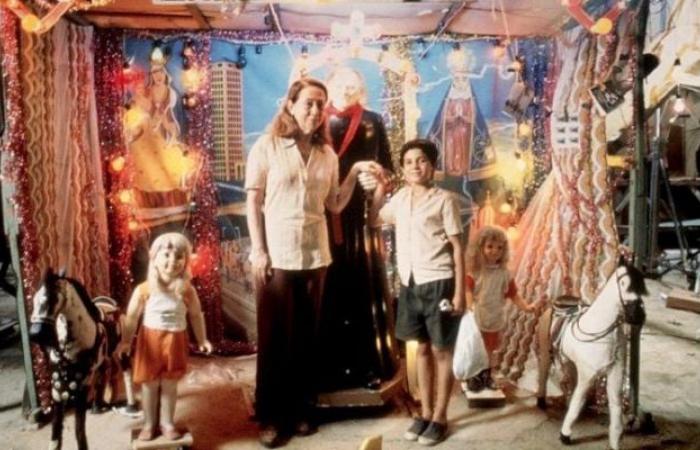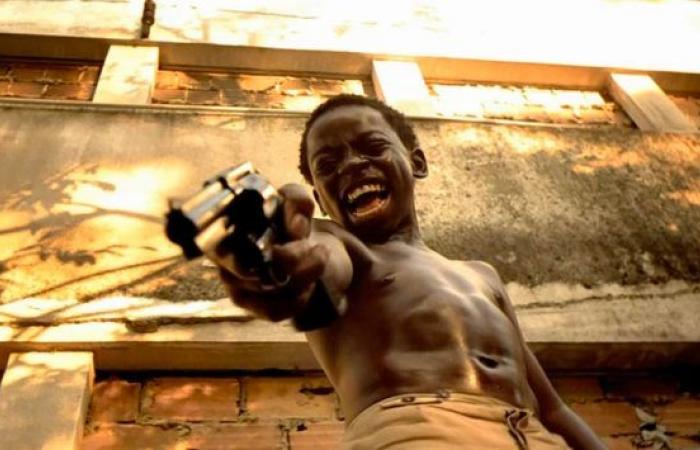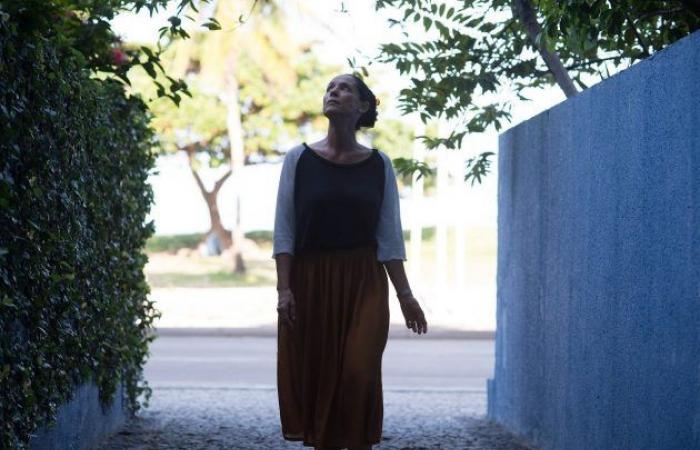While Walter Salles will soon be back on the big screen, we look back at the film that propelled the director to the Oscars at the turn of the 2000s : Central Brazil.
On January 15, the Brazilian film will be released I’m still herea family fresco about the military dictatorship that shook Brazil from the 1960s to the 1980s. Behind the camera, we find Brazilian filmmaker Walter Salles, recognized worldwide for his two ambitious road movies: Travel diarieswhere it depicted the young Che Guevara’s seminal journey through South America, and the most Hollywood On the roadadapted from the cult (and reputedly unadaptable) text by Jack Kerouac, with Kristen Stewart, Sam Riley and Garret Hedlund.
If this last example illustrates the usual incursion into Hollywood by non-American filmmakers, Walter Salles remains recognized for his contribution to Brazilian cinema.and more broadly South American on the world stage.
From the dictatorship, Che Guevara and Jack Kerouac: no doubt, Salles is a filmmaker driven by a certain sense of politics, and by the themes of travel and exile. But his love for road movies manifested itself just before the turn of the 2000s, from his third film, Central Brazil. A work which represents a real tipping point in his career, since the director then received significant critical recognition, which brought him to the forefront of the main film festivals.

I go to Rio
Berlin Film Festival, 1998. During the closing ceremony, it was a Franco-Brazilian co-production which received the prestigious Golden Bear, against behemoths like The Big Lebowski, Will Hunting or Jackie Brown. This film which wins over the Coen brothers, Gus Van Sant and Tarantino is Central Brazilthe third feature film by a Brazilian director with a background in documentaries, who had already stood out three years earlier with the thriller against the backdrop of exile Far Land.
What clashes with the idea of Central Brazilit’s his way of taking up the classic (and very American) genre of the road movie to represent the cartography of a little-known Brazil : that of the north-east, of precariousness and arid zones. The film opens in Rio de Janeiro, at a train station, where Dora, a retired former teacher, runs a small stand where she writes letters for illiterate people.
There she meets little Josué, nine years old, and his mother, who wishes to write to Josué’s father so that he can get to know his son. But shortly after, Josué’s mother dies suddenly after being hit by a bus: rather than leaving the young boy on the street, Dora will then make it her mission to take him to his father, at the other end of the street. country.


The scenario itself reflects the political intention of the director : leave the oh-so-fantastic city of Rio de Janeiro to travel inland, and reclaim rural areas. Historically, the road movie has always been the cinematographic genre of the conquest of territory, of the exploration of peri-urban and rural spaces, sometimes involving highlighting the precariousness of these spaces.
When he reappropriated this genre, Walter Salles decided to highlight not only the arid landscapes of the Northeast, but also the interiors of houses, churches, restaurants. He then multiplies medium shots and wide shots, paying attention to inserting his characters into magnified precarious settings, to bring out the colors, the inscriptions… And the omnipresence of religious motives.
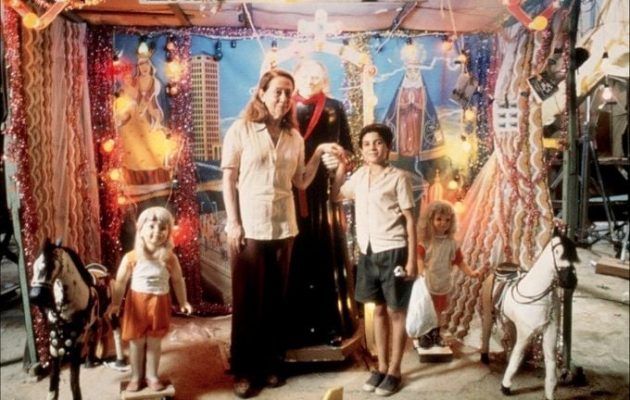

However, Walter Salles also coats his film of a very westernizing fabricwhich seems written to correspond to European and North American festivals: we can no longer count the pieces of languid piano and violins in the style of Yann Tiersen, which accompany the melancholy face of little Josué, nor the yellow filters on the images of the dusty streets of Rio de Janeiro.
But he also doesn’t skimp on an assumed sentimentalism, very much inherited from telenovelas, known for pushing the melodrama sliders to the limit. And on this very melodious tone, he superimposes sequences with a more documentary vocation: shots facing the camera to collect letters from illiterate people, religious processions, folk songs from the Northeast…
-While addressing a global statement on the evangelical religion, illiteracy, the economic crisis, and resigned fathers. To see these different ingredients, nothing surprising, therefore, that the film enjoyed a triumphant reception at festivals.


Started from the bottom now we here
Car Central Brazil enjoyed considerable critical success which led him to travel through the main festivals, from the screenplay prize at Sundance to the Berlinale, where he won the Golden Bear for best film and the Silver Bear for best actress for Fernanda Montenegro, who plays Dora.
The following year, the film continued its success by winning the Golden Globe for best foreign language film. He was nominated for an Oscar for best foreign film and for best actress – but he left empty-handed, beaten by Life is beautiful of Benigni and by Shakespeare in Love which will earn Gwyneth Paltrow the acting prize.
This critical success is a first for Brazilian cinema which had lacked recognition for several decades – more precisely since the 1960s and the very intellectual cinema novo, directly inspired by the New Wave, therefore extremely confidential.


On Brazilian territory, Central Brazil enjoys quite honorable public success, which can be explained in part by the casting of Fernanda Montenegro, an extremely famous film and telenovela actress, for the main role. The film has more than 1.5 million admissions: a small featto the extent that exhibitors are reluctant to program national cinema, and the film suffered at the same time from competition with a certain blockbuster called… Titanic. Internationally, it will generate a total box office of nearly $6 million.
However, this critical and public reception will make it possible to relaunch national film production in Brazil, to the point of creating a new period in the history of its cinema: the resumption (the «reprise»)which is illustrated by the relaunch of the film financing system in the mid-1990s, and their distribution on a global scale, notably through the circuits of prestigious festivals. And if the role of Walter Salles was decisive in this relaunch, he was not left behind subsequently, since he would be at the helm of one of the greatest international successes of Brazilian cinema: The City of God.
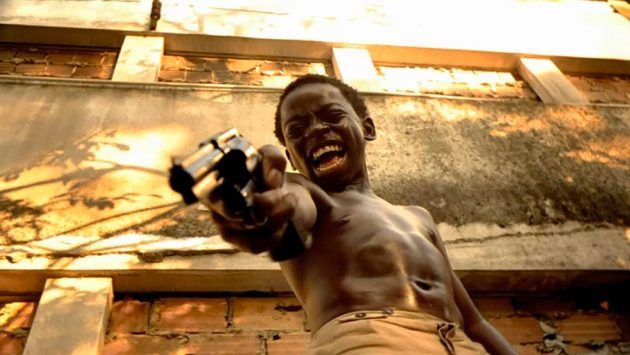

And Central Brazil announces the arrival of Brazil in international cinema, The City of God is the explosion. Directed by Katia Lund and Fernando Meirelles, with Walter Salles as executive producer, the film was presented out of competition at the 2002 Cannes Film Festival, garnered four Oscar nominations (best director, best adapted screenplay, best editing and best cinematography) and is also selected for the Golden Globes and the BAFTAs.
But it is above all on the public side that the film stands out, since it has totaled more than 3,300,000 admissions in Brazil, and generated a worldwide box office of 30 million dollars. It must be said that the ultra-pop aesthetic of the film, which focuses on the chronicles of a violent neighborhood in Rio de Janeiro over several years, was more likely to leave an lasting impression.
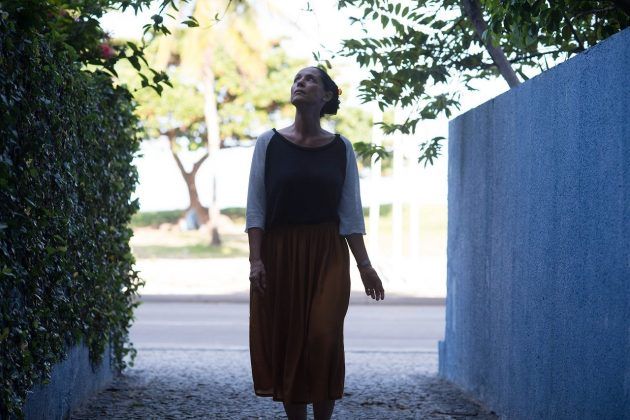

Despite the success of Central Brazil and of The City of God which plowed the furrows of a revival of national cinema, this revival faded from the mid-2000s, holding up with difficulty in the face of the predominance of Hollywood blockbusters on the national market. Ten years later, Walter Salles finds himself alongside another director who will ensure the succession of Brazilian auteur cinema: it is Kleber Mendonça Filho, whose film Aquariuswhich caused a sensation at Cannes, is co-produced by the director of Central Brazil.
If public financing of Brazilian cinema has never been known for its solidity, it has nevertheless been seriously undermined since the Bolsonaro government, which declared that it wanted to put an end to the National Cinema Agency – an equivalent of the Brazilian CNC – in putting him under his supervision. There is therefore nothing trivial about what I’m still hereSalles’ new film, returns to the foundations of the military dictatorship, as if trying to give us a painful reminder.


